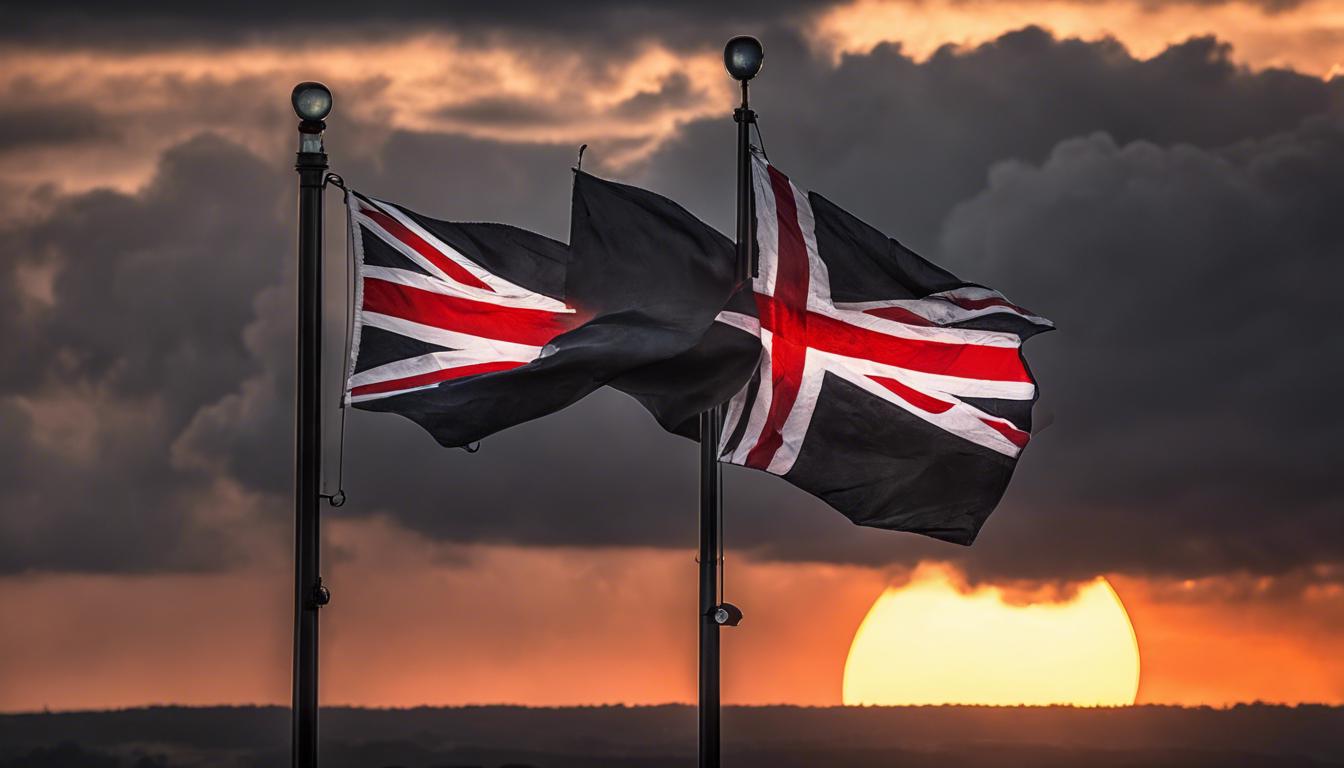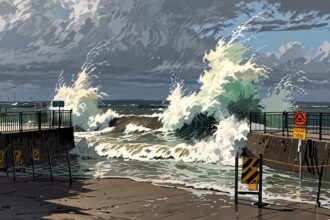The UK braces for a series of significant events ranging from a beautiful partial solar eclipse to the harsh realities of Storm Kathleen, alongside the ongoing discourse on St George’s Day becoming a public holiday.
The UK is set to experience a diverse range of events affecting both the skies and the ground in the upcoming period. A partial solar eclipse is anticipated at sunset on a specified date in 2024, promising a stunning celestial display across the west coast of Ireland, Scotland, Wales, and the west of England. While cloud cover might hinder visibility for some, the phenomenon is expected just before 8 pm. Motorists are advised to exercise additional caution during this time to prevent distractions and ensure safety, drawing lessons from a noted increase in fatal accidents during the 2017 solar eclipse in the US. Observers are reminded to avoid looking directly at the Sun to avoid potential blindness and to stay vigilant on the roads.
In other news, St George’s Day, celebrated on April 23rd, continues to highlight the absence of a dedicated bank holiday for England and Wales, in contrast to Scotland and Northern Ireland, which honor their patron saints with a public holiday. Despite previous political promises to make St George’s Day a national holiday, there has been no recent movement towards this goal, leaving England and Wales without a bank holiday for their patron saint.
Furthermore, the UK is preparing for the arrival of Storm Kathleen, forecasted to bring heavy rain and winds of up to 70mph in various regions, including Plymouth, Swansea, and Carlisle. The Met Office has issued warnings of potential dangers to life, travel disruptions, and power cuts due to the storm, which is expected to impact the country over the weekend. Despite the storm, southeast areas might experience the highest temperatures of 2024 so far, reaching up to 21C. Residents in the affected areas are urged to follow weather updates and exercise caution during the storm’s passage.
Each of these events brings unique considerations for UK residents, from celestial observations and cultural recognitions to weather preparedness, underlining the diverse aspects of life in the UK.













